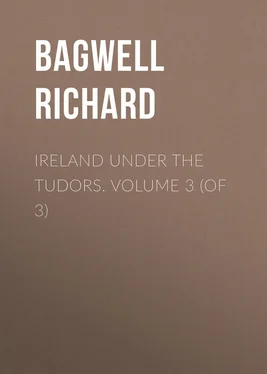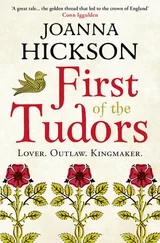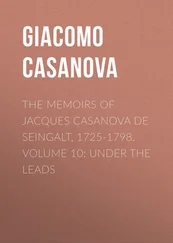Richard Bagwell - Ireland under the Tudors. Volume 3 (of 3)
Здесь есть возможность читать онлайн «Richard Bagwell - Ireland under the Tudors. Volume 3 (of 3)» — ознакомительный отрывок электронной книги совершенно бесплатно, а после прочтения отрывка купить полную версию. В некоторых случаях можно слушать аудио, скачать через торрент в формате fb2 и присутствует краткое содержание. Жанр: foreign_antique, foreign_prose, на английском языке. Описание произведения, (предисловие) а так же отзывы посетителей доступны на портале библиотеки ЛибКат.
- Название:Ireland under the Tudors. Volume 3 (of 3)
- Автор:
- Жанр:
- Год:неизвестен
- ISBN:нет данных
- Рейтинг книги:3 / 5. Голосов: 1
-
Избранное:Добавить в избранное
- Отзывы:
-
Ваша оценка:
- 60
- 1
- 2
- 3
- 4
- 5
Ireland under the Tudors. Volume 3 (of 3): краткое содержание, описание и аннотация
Предлагаем к чтению аннотацию, описание, краткое содержание или предисловие (зависит от того, что написал сам автор книги «Ireland under the Tudors. Volume 3 (of 3)»). Если вы не нашли необходимую информацию о книге — напишите в комментариях, мы постараемся отыскать её.
Ireland under the Tudors. Volume 3 (of 3) — читать онлайн ознакомительный отрывок
Ниже представлен текст книги, разбитый по страницам. Система сохранения места последней прочитанной страницы, позволяет с удобством читать онлайн бесплатно книгу «Ireland under the Tudors. Volume 3 (of 3)», без необходимости каждый раз заново искать на чём Вы остановились. Поставьте закладку, и сможете в любой момент перейти на страницу, на которой закончили чтение.
Интервал:
Закладка:
The letter fell into Ormonde’s hands, and the bearer seems to have been hanged in chains. Ormonde had already warned the Viscount to be careful, and he now sent an answer which at once committed him irretrievably and almost without hope of pardon. He said he had been commanded to take the sword by the highest power on earth, and would maintain the truth to the extent of his means.
‘Questionless,’ he added, ‘it is great want of knowledge, and more of grace, to think and believe that a woman uncapax of all holy orders, should be the supreme governor of Christ’s Church; a thing that Christ did not grant unto his own mother. If the Queen’s pleasure be, as you allege, to minister justice, it were time to begin; for in this twenty years’ part of her reign we have seen more damnable doctrine maintained, more oppressing of poor subjects, under pretence of justice, within this land than ever we read or heard… If Thomas Becket, the Bishop of Canterbury, had never suffered death in the defence of the Church, Thomas Butler, alias Becket, had never been Earl of Ormonde.’ 43 43 Baltinglas to Ormonde, received before July 24, 1580, to R. Walshe, July 18; Ormonde to Walsingham, July 24. I believe the connection of the Butlers with the Beckets has never been proved.
Ormonde sent the letter by express to Walsingham, for the Queen’s eye, characterising it as ‘foolish, traitorous, popish, and devil-persuaded,’ praying that God might confound all her unnatural subjects and give her victory over all His enemies.
‘Sir, I pray you tell her Majesty that poor Lucas will remain constant in the true faith, whoever follow the Pope and do the contrary, and that neither Becket nor Canterbury shall alter him.’
It was a year of great activity among the English Catholics. Parsons and Campion had just landed; the air teemed with rumours, and papers were freely circulated to prepare men for something extraordinary. A Devonshire gentleman named Eve brought one of these to Waterford, and it was not calculated to make the task of the Irish Government easier. Ten or twelve thousand men from the Pope, rather more from the King of Spain, and rather fewer from the Duke of Florence, were expected to invade England, and there to reassert the Pope’s lawful sovereignty. Elizabeth was declared ineligible, both as bastard and as heretic, to wear the vassal crown, and it was proposed to publish the Bull of excommunication in every Christian church and court. The English Catholic nobles were, however, to be allowed to crown one of their own number, who was to be independent of Spain, but her faithful ally in reducing the Hollanders. All Church lands were to be restored. The importer of this notable scheme was arrested by the Mayor of Waterford, and sent in irons to Clonmel, with his companion, a merchant of Bridgewater, to be dealt with by Pelham. We may, however, be sure that for one such production intercepted, many escaped the notice of the officials, and that Baltinglas had reason to expect support from outside. But he probably rested his hopes mainly upon the help of his neighbours, and even fancied he could get Kildare to join him. 44 44 Eve’s seditious libel, July 3; Pelham to the Mayor of Waterford, July 26, in Carew .
On July 14th, nearly a fortnight before the insurrection actually broke out, the Archbishop of Dublin met Kildare on the legendary hill of Tara. Baltinglas was only two miles off, and in charge of the Earl’s own troop. Kildare had been told everything, and he informed Loftus that the Viscount and other Papists had conspired and were ready to rebel. ‘The first exploit they will do,’ he said, ‘is to kill you and me; you, for the envy they bear to your religion, and me, for that being taken away, they think there is no one to make head against them.’ Dr. Loftus indeed might have had a bad chance had he fallen into their hands, but there is no likelihood that they had any murderous intention towards Kildare. The threat was probably used as likely to have weight with one whose sympathies were already more than half-gained: The Archbishop pressed the Earl to arrest the traitor and more than once received an evasive answer; but at last Kildare confessed what was doubtless the true cause of his inaction. ‘I should heap to myself universally the hatred and illwill of my country, and pull upon my house and posterity for ever the blame.’ At last he agreed to make an appointment with Baltinglas, and to arrest him, provided the Archbishop had an agent present to charge him on his allegiance. In the meantime he went to the Viscount several times in a quiet way, and did nothing until he and Feagh MacHugh O’Byrne were in actual rebellion. After this Baltinglas wrote to tell the Earl that he had unfurled his Holiness’s banner, and asking for an interview at the bridge of Ballymore Eustace. Kildare not appearing, he wrote again to express his regret and to urge him to join the good cause. ‘I trust therefore the day shall never come that strangers shall say that when Christ’s banner was in the field on the one side, and the banner of heresy on the other side, that the Earl of Kildare’s forces were openly seen to stand under the heretical banner.’ The charming was not particularly wise, yet Kildare did not altogether refuse to hear it. In the end he so managed matters as to alienate both sides. 45 45 Baltinglas to Kildare, July 22, 1580; Deputy Grey to the Queen, Dec. 23; Earls of Kildare , ii. 198 sqq.
At the very moment that Baltinglas broke out, Lord Grey de Wilton’s patent as Deputy was signed in England. Pelham had but a few weeks of authority left, and he did not pass them in idleness. By the advice of Sir Warham St. Leger, and with the consent of Ormonde, he detained most of the Munster lords and chiefs at Limerick; and, having thus laid hands on the shepherds, he proceeded to make his own terms with the flock. ‘My manner of prosecuting,’ he wrote to the Queen, ‘it is thus: I give the rebels no breath to relieve themselves, but by one of your garrisons or other they be continually hunted. I keep them from their harvest, and have taken great preys of cattle from them, by which it seemeth the poor people that lived only upon labour, and fed by their milch cows, are so distressed as they follow their goods and offer themselves with their wives and children rather to be slain by the army than to suffer the famine that now in extremity beginneth to pinch them. And the calamity of these things have made a division between the Earl and John of Desmond, John and Sanders seeking for relief to fall into the company and fellowship of the Viscount Baltinglas; and the Earl, without rest anywhere, flieth from place to place, and maketh mediation for peace by the Countess, whom yesterday I licensed to have speech with me at Askeaton, whose abundance of tears betrayed sufficiently the miserable estate both of herself, her husband, and their followers.’ It was by just such means that Mountjoy afterwards put down a much greater rebellion and a much abler rebel than Desmond, and those Englishmen who knew Ireland best could see no alternative. ‘It shall be found,’ said Bagenal, ‘how severely and thoroughly good Sir William Pelham hath handled Munster; as in all his government here he deserved with the best that preceded him, so in that wrought he good perfection, and so weakened the traitors there, that John Desmond is fled to Leinster, where he is to salve his drained estate with Baltinglas. His own actions, if his commendation should be withdrawn, will sufficiently express his desert.’ 46 46 Pelham to the Queen, Aug. 12, 1580, in Carew ; Sir N. Bagenal to Leicester, Oct. 3, in Wright’s Elizabeth .
Интервал:
Закладка:
Похожие книги на «Ireland under the Tudors. Volume 3 (of 3)»
Представляем Вашему вниманию похожие книги на «Ireland under the Tudors. Volume 3 (of 3)» списком для выбора. Мы отобрали схожую по названию и смыслу литературу в надежде предоставить читателям больше вариантов отыскать новые, интересные, ещё непрочитанные произведения.
Обсуждение, отзывы о книге «Ireland under the Tudors. Volume 3 (of 3)» и просто собственные мнения читателей. Оставьте ваши комментарии, напишите, что Вы думаете о произведении, его смысле или главных героях. Укажите что конкретно понравилось, а что нет, и почему Вы так считаете.












